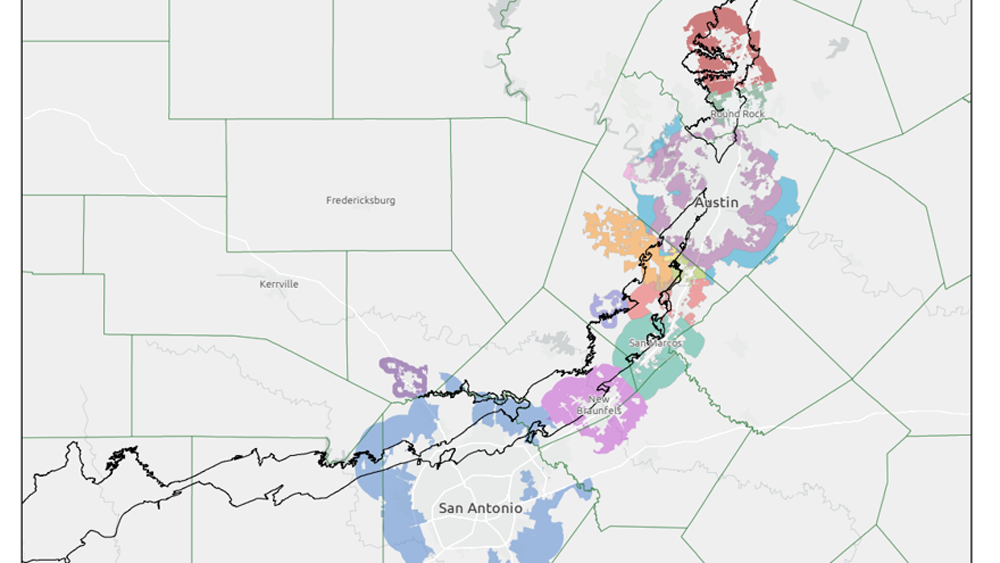The report, A Review of the Impacts of Senate Bill 2038 on Land Use and Water Supplies in Central Texas, provides an overview of SB 2038 and Extraterritorial Jurisdiction (ETJ) regulations; a snapshot of the impacts in Central Texas; an overview of the implications for planning, land management, and water supplies in the region; and policy recommendations.
Since the law’s implementation, hundreds of petitions for release from municipal ETJs, totaling thousands of acres, have been submitted to and required to be approved by cities throughout Texas. Released areas will be subject only to county and state regulations, which are much less protective than city regulations. These releases could put much of the land over the Edwards Aquifer Recharge Zone and throughout the environmentally sensitive Edwards and Trinity Aquifer watersheds at risk of environmental degradation, threatening the health, safety, and quality of life of Texans.
The report provides an overview of Senate Bill 2038 and ETJ regulations; a snapshot of the impacts in Central Texas; an overview of the implications for planning, land management, and water supplies in the region; and policy recommendations.
GEAA recommends the Texas Legislature reevaluate Senate Bill 2038. At a minimum, the law should be amended to ensure land overlying aquifer recharge and contributing zones must still adhere to protective municipal regulations, such as impervious cover limits and water quality protection ordinances. Regardless of whether the law is amended, the legislature should grant expanded authority related to water quality protection and land use to counties, at least in the Trinity and Edwards aquifer region, and/or consider explicitly directing the Edwards Aquifer Authority to adopt and enforce impervious cover regulations for the Edwards Aquifer Recharge and Contributing Zones within the authority’s boundaries.







